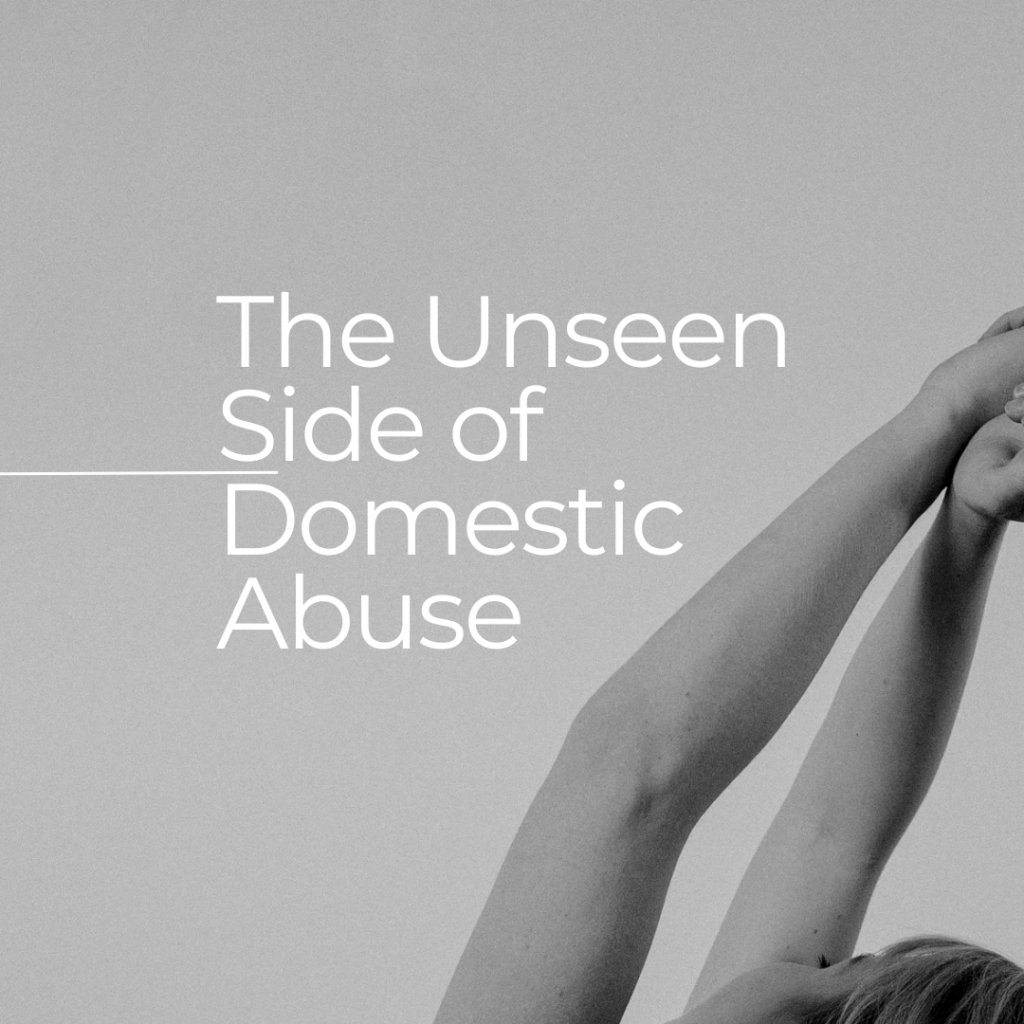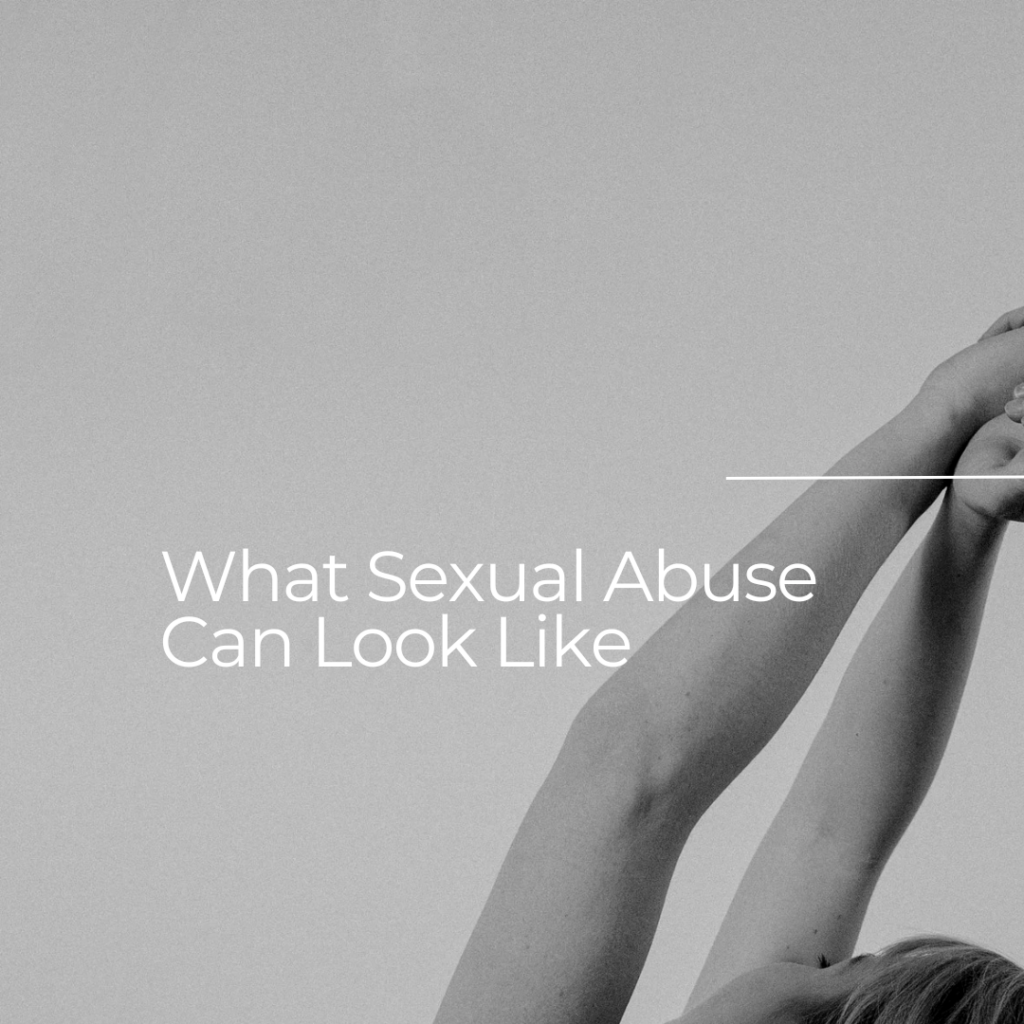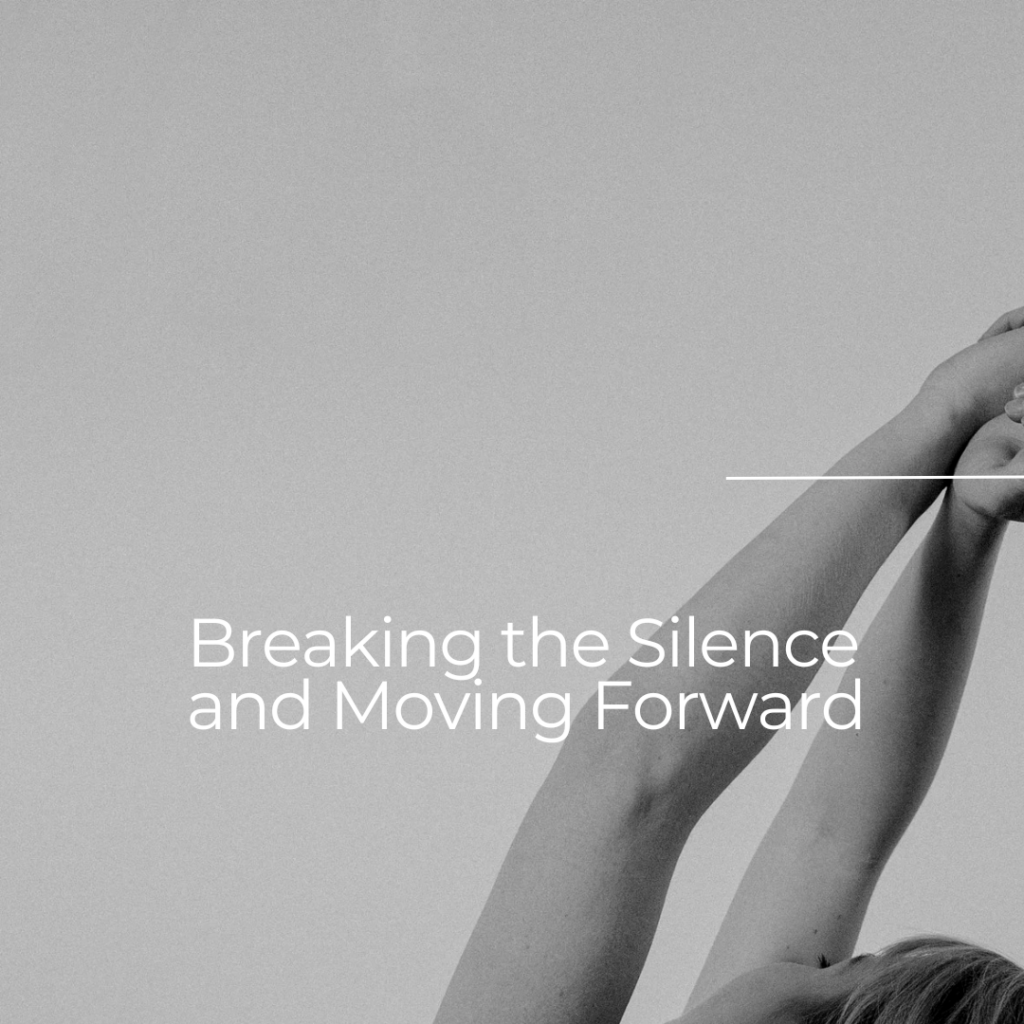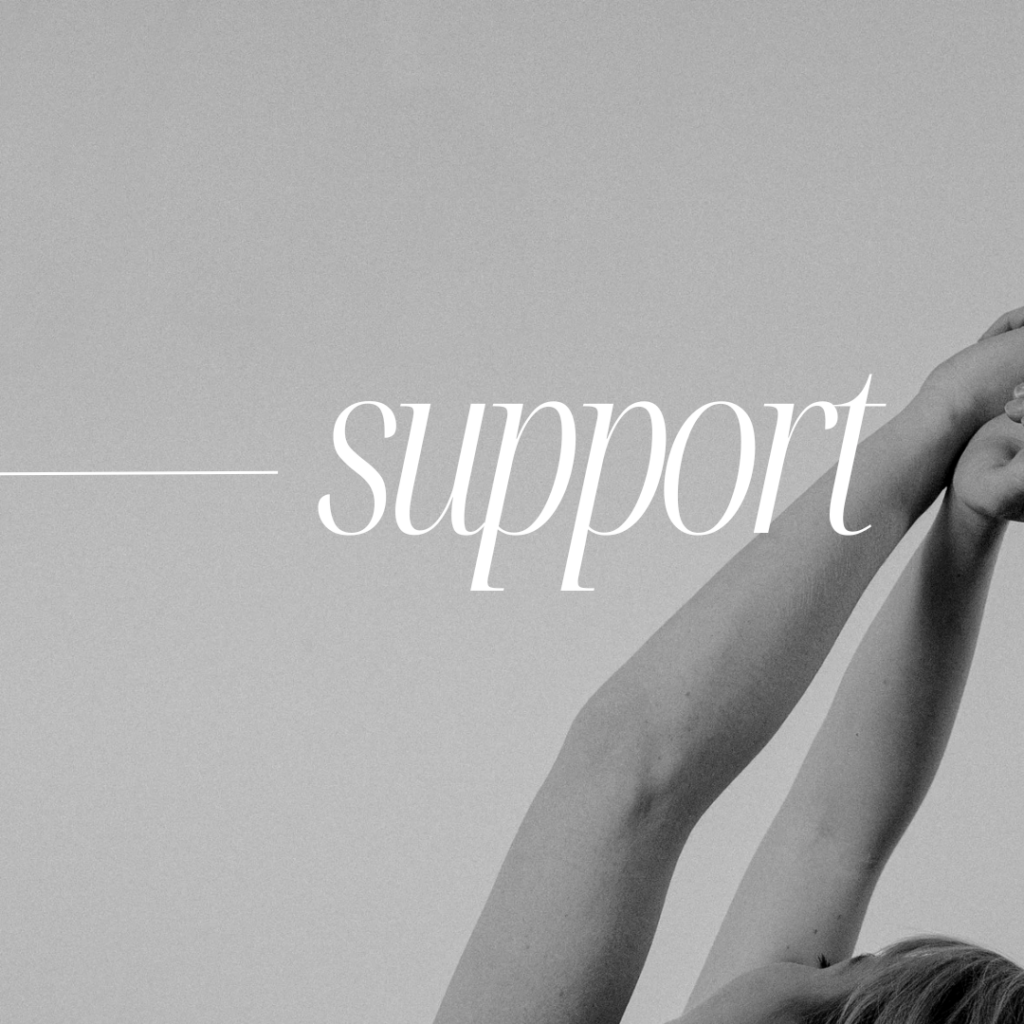A few days ago, I sat in a movie theater with one of my daughters by my side as we watched the much-anticipated movie It Ends With Us. My daughter, though an avid reader and interested in seeing how the book would be portrayed as a movie, was a little apprehensive about watching it because of the abuse we had gone through when she was younger. As someone who has lived through domestic abuse and carries the silent scars of sexual assault, I approached the film with a mix of curiosity and apprehension. What unfolded on the screen left us both in tears—tears from different places but rooted in a shared understanding of pain and survival.
For me, the movie touched on something deeply buried, something I hadn’t thought about in years. It brought back memories of a part of my life that I sometimes struggle to confront fully, even as an advocate. The sexual abuse I endured within my marriage is a chapter of my story that I don’t often revisit or even share. But as I watched those scenes unfold, I was reminded of the reality that so many endure, often in silence.
One scene hit me so hard it felt like I was watching myself all those years ago. Lilly, the star of the movie, was being assaulted by her husband, Ryle, and I could hear her voice begging him to stop. I could feel her pain, her desperation. At that moment, all of the thoughts and feelings from that night in my own life came rushing back. It was as if I was reliving it, hearing my own voice pleading, feeling the same helplessness and violation. That scene broke something open inside of me, reminding me just how deep those scars go, how they never fully fade.
The Unseen Side of Domestic Abuse: Sexual Coercion and Control

When people talk about domestic abuse, the conversation often centers on physical violence—the bruises, the black eyes, the overt signs of harm. But abuse is far more insidious than what meets the eye. It’s the manipulation, the emotional warfare, the financial control, and yes, the sexual coercion that can leave scars just as deep, if not deeper.
Sexual abuse within a relationship is a topic that’s often swept under the rug, especially when it happens within a marriage. The idea that a spouse can’t rape or sexually assault their partner is a dangerous myth that keeps many victims silent. But the truth is, any form of sexual activity that is coerced, forced, or manipulated is abuse, regardless of the relationship status.
I remember the first time it happened to me. My husband and I had just gotten married, and one night, he made it clear that he wanted to have sex. I wasn’t interested. I told him no, but he didn’t listen. At that moment, I felt a sense of powerlessness that I can only describe as suffocating. He was my husband—didn’t that mean I was supposed to give in, to meet his needs, no matter how I felt? All night and into the next morning, I rationalized what had happened. We were married, so it couldn’t have been wrong, or was it? But deep down, I knew something had been taken from me that night—something I wouldn’t fully understand until years later.
As time went on, this pattern of coercion and control continued. It wasn’t always overt. Sometimes, it was the constant nagging, the relentless pressure to have sex even when I was exhausted, sick, just had a baby, or simply not in the mood. He would say, “You have done this before, or you owe me.” It was as if my body was no longer my own but something I owed to him. This, too, I now realize, was abuse. Constantly nagging and harassing someone for sex is not just disrespectful—it’s abusive. It chips away at a person’s sense of self, reducing them to an object of gratification rather than a partner in a relationship.
Sexual abuse in a relationship doesn’t always look like what we see in the movies. It’s not always violent or forceful. It can be subtle, woven into the fabric of daily life in ways that make it hard to recognize and even harder to name. It’s the unwanted touches when you’re asleep, the pressure to perform sexual acts that make you uncomfortable, and the insistence that it’s your duty as a spouse to comply with sexual demands. It’s the manipulation, the guilt-tripping, the subtle threats that if you don’t give in, you’re somehow failing as a partner.

Recognizing the Signs: What Sexual Abuse Can Look Like
Sexual abuse in a relationship can take many forms, some of which are less obvious but no less harmful. Here are some examples:
- Unwanted Sexual Advances: This includes any form of sexual contact that is initiated without your enthusiastic consent. It could be touching, kissing, or more, and it happens despite your clear refusal or discomfort.
- Coercion and Guilt-Tripping: Your partner may constantly pressure you into having sex by making you feel guilty, saying things like, “You have to do this because you’re my spouse,” or “Other people do this for their partners.” This emotional manipulation is designed to wear down your resistance and force compliance.
- Nagging for Sex: Repeatedly asking for sex, especially when you’ve already said no, is a form of harassment. When your partner doesn’t respect your boundaries and continues to push, it creates a toxic environment where you feel obligated rather than willing.
- Using Sex as a Weapon: Your partner might withhold affection or sex as a punishment or demand it as a way to resolve conflicts, often saying things like, “We need to make up now” after an argument, even when you’re not ready or willing.
- Violating Boundaries During Sleep: Engaging in sexual activity while you’re asleep or unable to consent is sexual assault. This can be as simple as touching you inappropriately while you’re unconscious without your knowledge or consent.
- Forcing Specific Sexual Acts: Pressuring you to engage in sexual acts that make you uncomfortable or that you don’t want to do, often with the implication that refusing will lead to anger, withdrawal, or accusations of being a bad partner.
- Stealthing: The act of removing a condom during sex without your knowledge or consent is a violation of trust and a form of sexual assault, as it disregards your right to protect yourself from STDs or pregnancy.
- Verbal Abuse: Insults or derogatory comments related to your sexual performance or body are another form of sexual abuse. They are meant to belittle and control you, making you feel inadequate and more likely to submit to your partner’s demands.

Breaking the Silence and Moving Forward: From Survivor to Advocate
For years, I carried these experiences with me in silence. I didn’t have the words to describe what was happening and didn’t know I had the right to say no, even in my marriage. It wasn’t until I began to educate myself, to seek help from a therapist, that I started to see the whole picture. I learned that sexual coercion is a common tactic in abusive relationships—a way for the abuser to maintain control, assert dominance, and strip away the victim’s autonomy and dignity.
If you find yourself in a situation where your partner is constantly pressuring you for sex, where your boundaries are ignored or dismissed, where you feel like you have no choice but to comply, know this: it is not okay. You have the right to say no. You have the right to set boundaries. And if those boundaries are not respected, it is a form of abuse.
Watching It Ends With Us reminded me of the importance of these conversations. It reminded me of the power of speaking out and sharing our stories, even when it is difficult. Because every time we share, we break down the walls of silence that keep so many trapped in abusive relationships.
If you’re reading this and something resonates with you, if you’ve experienced or are experiencing something similar, know that you’re not alone. There is help out there, and there is hope. You deserve to be in a relationship where your boundaries are respected, your voice is heard, and your body is your own.
I’ve come a long way from that young woman who felt trapped and powerless. Today, I use my voice to help others, to educate, to advocate. But I’m also still healing. The journey is ongoing, and it’s one that I walk with others who have survived similar experiences. Together, we can create a world where no one has to suffer in silence, where abuse is recognized for what it is, and where everyone has the freedom to live with dignity and respect.

Resources for Support
If you or someone you know is experiencing sexual abuse in a relationship, reaching out for help is a critical first step. There are resources available to provide support, guidance, and assistance:
- National Domestic Violence Hotline: 1-800-799-SAFE (7233) or visit thehotline.org for confidential support and resources.
- RAINN (Rape, Abuse & Incest National Network): 1-800-656-HOPE (4673) or visit rainn.org for support and resources specific to sexual assault.
- Loveisrespect: 1-866-331-9474 or text “LOVEIS” to 22522 for support on dating abuse and understanding what a healthy relationship looks like.
- The National Sexual Violence Resource Center (NSVRC): Visit nsvrc.org for educational resources and information about sexual violence.






thanks for info.